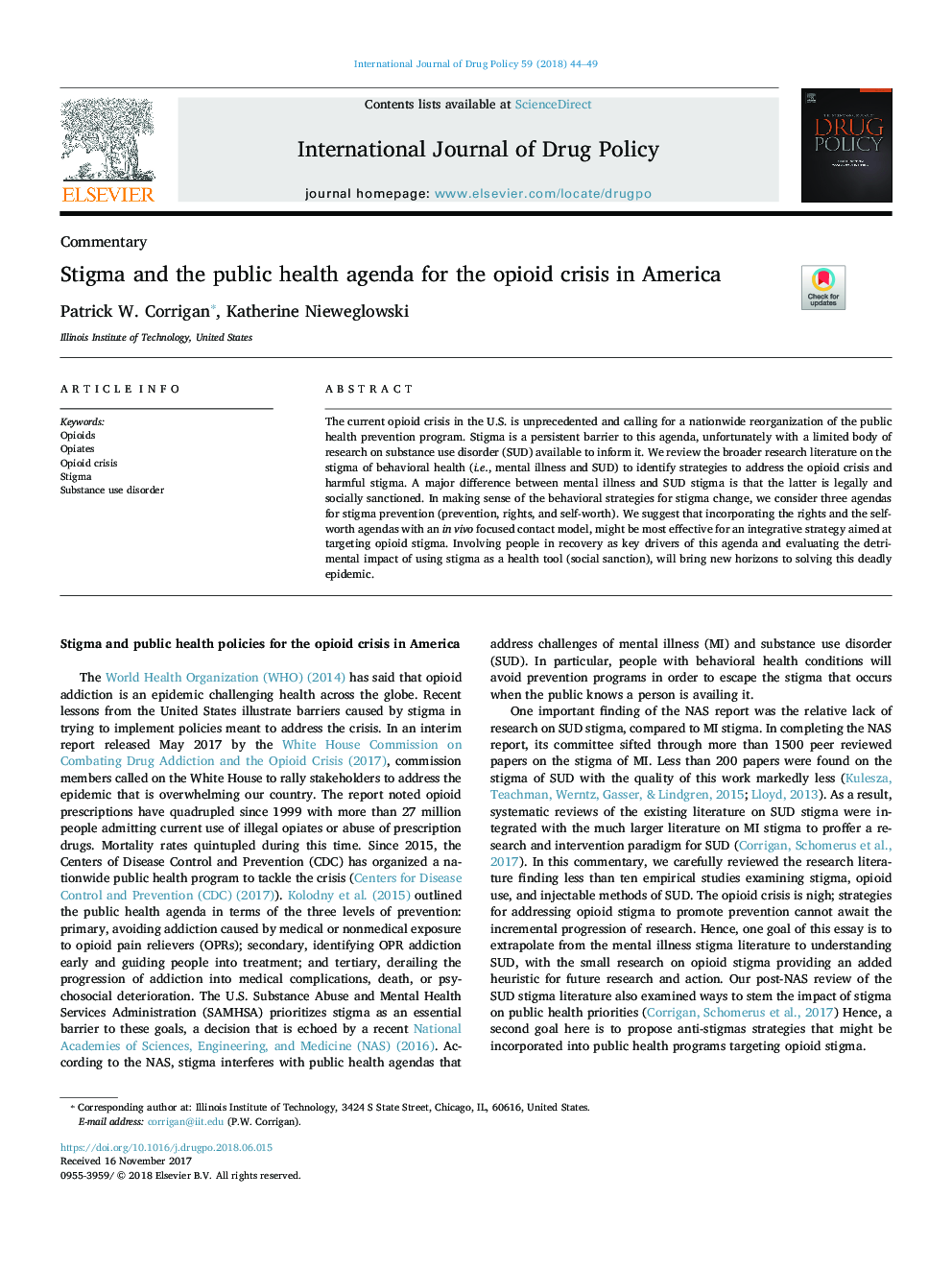| Article ID | Journal | Published Year | Pages | File Type |
|---|---|---|---|---|
| 7511232 | International Journal of Drug Policy | 2018 | 6 Pages |
Abstract
The current opioid crisis in the U.S. is unprecedented and calling for a nationwide reorganization of the public health prevention program. Stigma is a persistent barrier to this agenda, unfortunately with a limited body of research on substance use disorder (SUD) available to inform it. We review the broader research literature on the stigma of behavioral health (i.e., mental illness and SUD) to identify strategies to address the opioid crisis and harmful stigma. A major difference between mental illness and SUD stigma is that the latter is legally and socially sanctioned. In making sense of the behavioral strategies for stigma change, we consider three agendas for stigma prevention (prevention, rights, and self-worth). We suggest that incorporating the rights and the self-worth agendas with an in vivo focused contact model, might be most effective for an integrative strategy aimed at targeting opioid stigma. Involving people in recovery as key drivers of this agenda and evaluating the detrimental impact of using stigma as a health tool (social sanction), will bring new horizons to solving this deadly epidemic.
Related Topics
Health Sciences
Medicine and Dentistry
Psychiatry and Mental Health
Authors
Patrick W. Corrigan, Katherine Nieweglowski,
